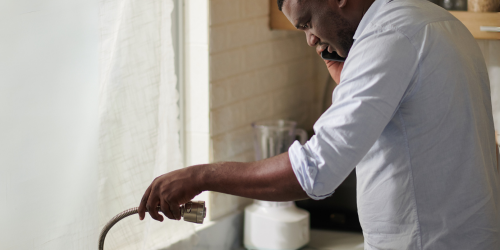A Perspective on Tenants’ Rights, from a HousingPlus Tenant
Tenants may not always be aware of their power or all of their rights. We recently sat down with HousingPlus tenant Beryl to discuss some of the major things she believes tenants may be unaware of. Beryl is an advocate for tenants; she encourages others to join in collective action against unscrupulous or neglectful landlords.
In 2018, Beryl was a founding member of HOPE, Housing Organizers for People Empowerment, a project supported by UHAB. HOPE works with tenants to inform them of their rights in Housing Court, explain the rules and regulations around rent control and stabilization, and advocate for tenants’ rights.
Beryl’s Key Takeaways from her work in tenants’ rights:
- Tenants should be aware of the Supportive Housing Bill of Rights – you can see a list of when providers must give notice of these rights below (Local Law 15, effective May 9, 2022). *
- When tenants know their rights, landlords will often do what they’re required to do for tenants.
- Tenants are a huge, untapped voting bloc. They may not have money, but they have numbers, and numbers matter.
- Maintenance issues and management harassment exist in luxury buildings, too – these issues are not exclusive to poorer tenants.
- Tenants have specific laws on their side and are entitled to representation in Housing Court.
- Organizing with other tenants can take place at the hyper-local level of your building, or you can get involved with advocacy at the neighborhood, city, and state levels.
An Overview of NYC Tenants’ Rights
New York City tenants are entitled to live in a home that meets certain standards of safety, repair, and cleanliness.
Below, we list what your landlord is required to do by New York City law. However, because this is not a comprehensive list, we encourage you to view the NYC Housing Preservation and Development Tenants’ Rights page.
- Heat and hot water
Landlords must ensure the building has hot water and that heat is available during “Heat Season” – between October 1st and May 31st each year. Specifically, Heat Season rules state that buildings must be heated to at least 68 degrees Fahrenheit between 6 am and 10 pm if the outside temperature is less than 55 degrees Fahrenheit. While at night, between 10 pm and 6 am, buildings must be heated to a minimum of 62 degrees Fahrenheit regardless of the outside temperature.
- Timely necessary repairs
Tenants should request repairs to the superintendent, managing agent, or property owner. If the managing agent or property owner does not complete the repairs or respond, tenants should contact them in writing. You can find out who owns and operates your building here by typing in your address. If you don’t receive a response, file a complaint here.
- Safety measures for tenants with children
Tenants with children under 10 are entitled to receive window guards, and the landlord must ensure these guards are installed. Tenants with children under 6 should report peeling paint to their landlord right away, and if it is not fixed quickly, report the issue to 311.
- No lockouts
Landlords cannot change the locks without providing residents with a key, unless they have a warrant of eviction.
- No harassment
Landlords cannot harass tenants. Tenants who experience harassment are encouraged to take legal action, and more resources can be found here.
- Good Cause Eviction
As of April 2024, landlords need a “good cause” reason to initiate eviction. We will share more specific information about eviction rules and Good Cause Eviction in an upcoming blog. Please find out more about Good Cause Eviction here and here.
* Supportive housing providers must provide this notice to prospective and permanent tenants:
- At the time of the interview
- At the time of initial occupancy of a unit
- At each lease or program agreement renewal
- Upon request
